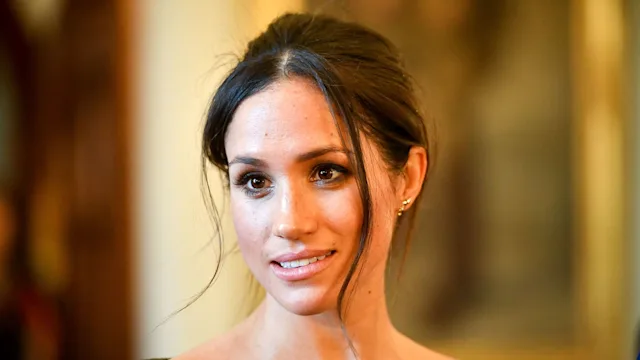There is a strange phenomenon in modern culture where public figures are simultaneously expected to be flawless and punished when they resist those expectations. Nowhere is this more visible than in the case of Meghan Markle, the Duchess of Sussex, who has become a lightning rod for disproportionate criticism, obsessive media coverage, and misplaced public outrage.
Let’s be clear: Meghan Markle has done nothing wrong. She married a man she loved, experienced extraordinary pressure and emotional turmoil under the harsh glare of public life, and ultimately chose to step back in order to protect her mental health and that of her family. In any rational world, this would be seen as a brave and human response to an impossible situation. But instead of support, she has been vilified.
And here’s the part that borders on the surreal: even if Meghan were a self-absorbed, egotistical, difficult person — and there’s no credible evidence that she is — that wouldn’t be a crime. Being confident, assertive, or even ambitious isn’t morally reprehensible. In fact, it’s expected in almost every other arena of life. And yet, when it comes to a woman in the royal spotlight, these traits are twisted into defects. She’s not allowed to set boundaries, to want privacy, or to express pain. If she does, she’s painted as a villain.
The reality is, we live in a culture that is more willing to extend empathy to criminals than to a woman who chose to leave the monarchy. Convicted murderers have their stories turned into redemption arcs. Documentaries are made about their traumas and misunderstood motives. Meanwhile, Meghan — a woman who has committed no crime — is dissected, degraded, and demonized for little more than stepping outside the lines drawn for her by an archaic institution.
Much of this backlash seems rooted in the unspoken belief that she “turned her back” on the Crown, an act that, in the public consciousness, apparently outweighs any amount of personal suffering. But history is rife with examples of what happens when people fall out of favor with the monarchy — whether through scandal, tragedy, or simple refusal to conform. The Crown has a long and well-documented tradition of burying its enemies, metaphorically and sometimes literally. And when it can’t do so quietly, it often does so through sanctioned silence, revisionist history, and press complicity.
Meghan and Harry’s departure wasn’t a rebellion. It was an act of self-preservation. When faced with an institution that has been known to chew people up and spit them out, they chose to protect their family. That isn’t betrayal — that’s wisdom.
So the question must be asked: Why are so many people so angry at a woman who refused to suffer in silence? Why are we more comfortable offering compassion to the worst among us, while condemning someone who simply wanted a different life?
The answer isn’t found in Meghan Markle’s actions — because, again, she hasn’t done anything wrong. The answer is found in the people doing the condemning. It says more about the public’s obsession with tradition, control, and punishment of perceived disobedience than it ever could about the duchess herself.
It’s time to step back and recognize that Meghan is not the villain in this story — she’s just the one who said “no” to being one more silent casualty of the Crown. And in that choice, there is nothing to condemn — only a great deal to admire.




